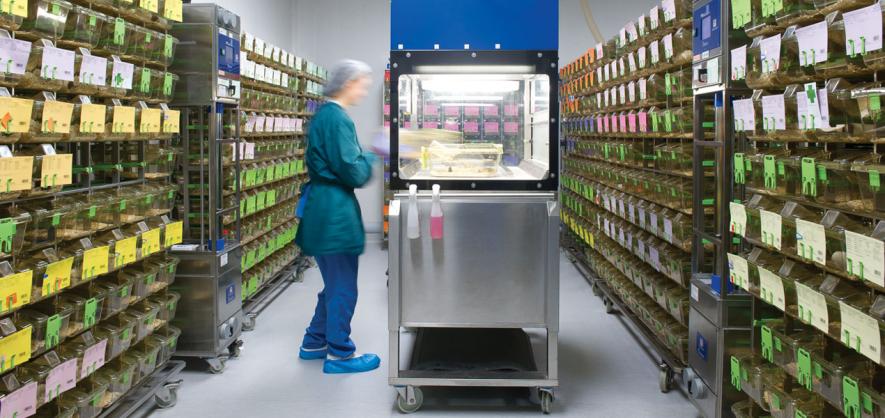World’s Leading Genomic Institute Declares Closure of Animal Facility

One of the world’s top genomics institute, the Wellcome Sanger Institute, UK, has decided to close its 13-year-old animal research laboratory. Sanger’s animal laboratory has been a leading supplier of mouse strains to thousands of genetic researchers across the world.
The institute says that the closure is the outcome of a move towards using alternative technologies in genetic research, instead of animals. The alternative technologies that the institute is vetting for include cell lines and organoids—3D biological structures that can be grown in a dish. However, Sanger Institute scientists who are engaged in studying complex diseases like cancer, which demands a holistic understanding of the function of the organism in terms of genetic alterations, will still be using animal models such as mice in individual labs until the facility closes at 2022 at the latest.
Mike Stratton, the director of the institute said—“This decision has been driven by the institute’s scientific strategy and was based on a rigorous review and consultation.” The animal facility was built up in 2006 with an expense of US$ 38 million and hosts mice, zebrafish, rats and frogs used in research and employs about 70 people.
The closure comes almost six months after Sanger scientists raised serious concerns about animal welfare at the facility in a letter to Mrtin Doughetry, Sanger’s CEO. According to Nature, in November 2018 in an unsigned letter, scientists of the institute said that shortage of staff was risking the facility’s high welfare standards. Also, shortage of trained stuff led to culling of animals, which is unethical.
Impact on Research
The concerns of use of alternative means other than animal models in biological researches have been increasing worldwide. Sanger’s closure of its animal facility also reflects the changing mode of research. “The current trend is to move towards in vitro system to study human biology”—says Ramiro Alberio, a developmental biologist at Nottingham University of UK.
Sanger scientists argue that their step is not to halt all animal experiments, but is an effort to minimize experiments on living creatures. Techniques like cells grown in culture and creation of miniaturised versions of animal or human organs such as kidney and pancreas, are now making it possible to reduce animal experiments, according to their argument.
To study human biology, the reliance on alternative means like DNA technique, organoids, in some cases may prove useful. However, there are many such fields where studying the whole organism is quite a necessity. For example, in cancer research, studying the genetic factors and the way it functions need to be studied on the whole organism. In such cases, in vitro expression of a particular gene and the related protein might not give a proper understanding of the biology involved.
Robert Weinberg, a cancer biologist at the Whitehead Institute for Biomedical Research in Cambridge, Massachusetts, was quoted in Nature as saying, “As scientists learn more about the processes of diseases including cancer, they are increasingly realising that genome analysis alone will not provide all the answers. Mice are particularly useful for studying complex tissues. Mouse models are irreplaceable and have not been obviated by complex data sets. I’m very surprised because this decision is so wrong-headed. It is premature by a decade or two. Sanger will fall behind.”
Apart from complex biological research like cancer, mouse models are also necessary in preclinical research in drug discovery. Any new drug developed, is applied on mice to analyse the toxicity, effectiveness and virulence. Promoting in vitro ways and wiping away animal models is probably going to have an impact on it.
Get the latest reports & analysis with people's perspective on Protests, movements & deep analytical videos, discussions of the current affairs in your Telegram app. Subscribe to NewsClick's Telegram channel & get Real-Time updates on stories, as they get published on our website.

















